Dushanbe hosts high-level international conference on countering terrorism and violent extremism
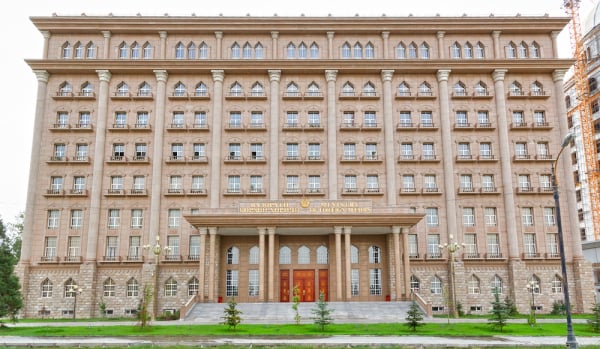
DUSHANBE, 01.05.2018. /NIAT «Khovar»/. A High-level International Conference “Countering Terrorism and Preventing Violent Extremism”, which is organized by the Government of the Republic of Tajikistan in cooperation with the United Nations, the Organization for Security and Co-operation in Europe and the European Union, will take place in Dushanbe on May 3-4.
A statement by the Tajik MFA Information Department Indicated that the main objectives of the conference include: Creating a common understanding of current challenges and obstacles in the implementation of the UNGCTS in the region and globally; Exploring opportunities for strengthening partnership and cooperation at national, regional and international levels on combatting terrorism and violent extremism; Sharing opportunities and challenges of Tajikistan’s National Counter-Terrorism Strategy implementation; Identifying trends and challenges of radicalization and the role of youth, ideology and information in preventing and combating violent extremism leading to terrorism; Exchanging experiences in countering terrorism and preventing violent extremism with a focus on Foreign Terrorist Fighters (FTF) threat prevention; Stock-taking of domestic and regional mechanisms to counter terrorism and prevent violent extremism and radicalization that lead to terrorism.
More than 400 guests have been registered to participate in this conference. Representatives of 46 countries of the world and 30 international organizations will participate in the upcoming conference.
Terrorism, radicalism and violent extremism are among today’s greatest security challenges, feeding instability in many parts of the world. Violent extremist groups, through committing terrorist crimes; recruiting young people into their ranks; suppressing women’s rights and attacking their physical integrity; are undermining the efforts of the international community to maintain peace and security, foster sustainable development and promote the respect for human rights in today’s world.
Terrorist and violent extremist activities spread across national borders, representing a global security challenge that countries cannot tackle alone. These challenges demand a multi-sectoral, comprehensive and effective cooperation between, national, regional and international-level actors in framing response strategies. Further, international and domestic experience in countering and preventing violent extremism, radicalism and terrorism demonstrates that succeeding in this area necessitates developing and implementing a range of human rights-based measures to address socio-economic, legal and institutional factors contributing to the spread of violent narratives and ideologies. This includes developing people’s resilience against these narratives through a whole-of-society approach involving men and women, girls and boys.
On 8th September 2006, the United Nations General Assembly adopted the Global Counter-Terrorism Strategy (UNGCTS) as a unique global instrument to enhance national, regional and international efforts to counter terrorism. The UNGCTS provides a solid and comprehensive foundation for further actions of UN Member States to take practical steps individually and collectively to prevent and combat terrorism and violent extremism with a human rights-based approach. In 2011, as part of the UNRCCA-CTITF regional project titled” Towards a Comprehensive implementation of the UNGCTS in Central Asia”, a Joint Plan of Action(JPoA) for the implementation of the Global Strategy in Central Asia was adopted. Progress in the implementation of this regional document was reviewed at a regional Ministerial meeting that took place in Ashgabat in June 2017, in presence of UN Secretary General A. Guterres.
The OSCE also adopted a number of documents and initiatives in recent years to assist participating States in preventing and countering violent extremism following a multi-dimensional approach, in accordance with the OSCE Consolidated Framework for the Fight Against Terrorism and Ministerial Council Declaration 4/15 (4 December 2015) on Preventing and Countering Violent Extremism and Radicalization that Lead to Terrorism.
Recognising the need to deepen attention to structural drivers and root causes of terrorism and violent extremism, the United Nations launched a Plan of Action on Preventing Violent Extremism (PVE) in 2016, which urges member states to complement security-driven responses with a range of development-focused solutions and interventions. Moreover, the Plan of Action calls for regional and national PVE action plans to be developed.
In this context, and with the assistance of the OSCE Programme Office in Dushanbe, Tajikistan developed its National Strategy on Countering Terrorism and Extremism (NSCTE) for the period of 2016-2020, adopted on 12 November 2016, which incorporates provisions of the UNGCTS. The NSCTE requires the relevant authorities to enhance the effectiveness of interaction and ensure the implementation of cooperation agreements on fighting terrorism and violent extremism with fellow Central Asian countries. Furthermore, the Tajik Government is committed to aligning its interventions in this domain with international norms and best practices including rights-based approaches.
In 2017, a delegation of the UN Security Council Counter-Terrorism Committee visited Tajikistan, to assess the implementation of the above-mentioned instruments. The Committee identified a number of priority technical assistance areas. This conference is organized as a further element of Tajikistan’s commitment to countering terrorism and violent extremism nationally, regionally and as an international partner.











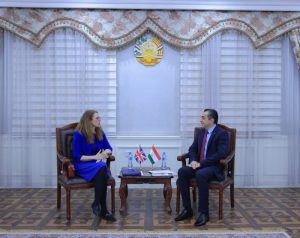 Tajikistan and the UK Explore Ways to Strengthen Political and Economic Cooperation
Tajikistan and the UK Explore Ways to Strengthen Political and Economic Cooperation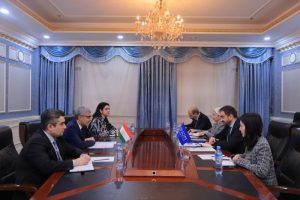 Tajikistan–IOM Cooperation Discussed in Dushanbe
Tajikistan–IOM Cooperation Discussed in Dushanbe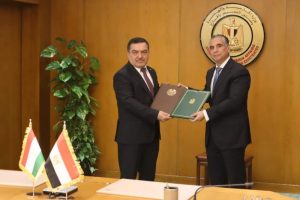 First Consular Consultations Between Tajikistan and Egypt Held in Cairo
First Consular Consultations Between Tajikistan and Egypt Held in Cairo Tajikistan, Turkey Highlight Importance of Expanding Inter-Parliamentary Cooperation
Tajikistan, Turkey Highlight Importance of Expanding Inter-Parliamentary Cooperation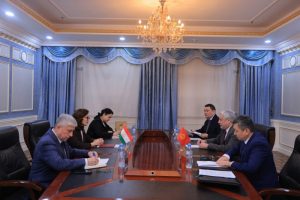 Tajikistan, Kyrgyzstan Discuss Implementation of Bilateral Agreements in Dushanbe
Tajikistan, Kyrgyzstan Discuss Implementation of Bilateral Agreements in Dushanbe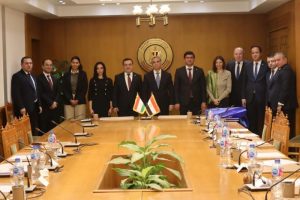 Political Consultations between the Foreign Ministries of Tajikistan and Egypt Held in Cairo
Political Consultations between the Foreign Ministries of Tajikistan and Egypt Held in Cairo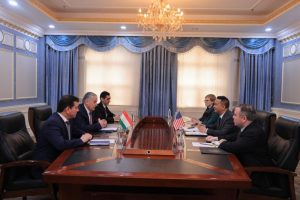 FM Muhriddin meets with U.S Ambassador due to completion of his mission in Tajikistan
FM Muhriddin meets with U.S Ambassador due to completion of his mission in Tajikistan Tajikistan and Germany discuss bilateral cooperation
Tajikistan and Germany discuss bilateral cooperation Joint Statement by the Ministries of Foreign Affairs of the Republic of Tajikistan and the Kingdom of Bahrain on the Occasion of the 30th Anniversary of the Establishment of Diplomatic Relations
Joint Statement by the Ministries of Foreign Affairs of the Republic of Tajikistan and the Kingdom of Bahrain on the Occasion of the 30th Anniversary of the Establishment of Diplomatic Relations New Ambassador of Tajikistan presents copies of his credentials to the head of protocol of the US State Department
New Ambassador of Tajikistan presents copies of his credentials to the head of protocol of the US State Department UN General Assembly adopts Tajikistan’s resolution on International Year of Legal Literacy, 2027
UN General Assembly adopts Tajikistan’s resolution on International Year of Legal Literacy, 2027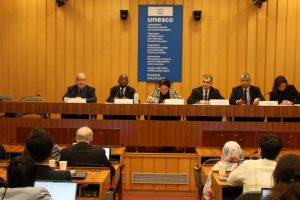 Dushanbe to host International Conference on Water for Sustainable Development in 2026
Dushanbe to host International Conference on Water for Sustainable Development in 2026














